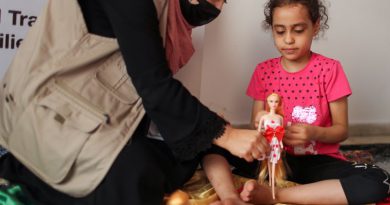Ankara burns bridges with UAE but maintains ties with Israel: Why?
Arab News
So, all the UAE is doing is what Turkey has done for almost 70 years – recognize Israel…
After Turkish President Recep Tayyip Erdogan threatened on Friday to suspend diplomatic relations with the UAE following a breakthrough deal between the Gulf state and Israel, without making reference to any downgrading of its own diplomatic relations with Tel Aviv, the move was criticized by many as hypocrisy.
The deal between Israel and UAE requires that Israel suspend its planned annexation of parts of the West Bank in exchange for a normalization of ties with Abu Dhabi. In response, the Palestinian Authority announced the “immediate” recall of its ambassador to the UAE.
The Turkish Foreign Ministry described the deal as a betrayal of the Palestinian cause.
Although it is a strong advocate of the Palestinians as far as Israeli actions in the Gaza Strip and West Bank are concerned, Turkey continues to maintain its diplomatic ties with Israel.
“Turkey has a hypocritical stance, slamming the UAE for discussing relations with Israel, while Turkey also has relations with Israel,” said Seth J. Frantzman, executive director of the Middle East Center for Reporting and Analysis.
Turkey has had diplomatic relations with Israel since 1949. Despite deep mistrust between the two countries, especially since the Mavi Marmara incident in 2010, when Israeli commandos boarded a Turkish aid boat and killed ten Turkish activists, bilateral trade between two countries reached to $6 billion last year. Israel is among Turkey’s top 10 export markets.
In the past two years, the bilateral diplomatic representation has been at the level of chargé d’affaires rather than ambassador in response to the transfer of the US embassy to Jerusalem and to Israeli policies in the Gaza Strip.
According to Frantzman, this rhetoric is part of a deliberate choice by Ankara to distract from economic failure at home.
“Ankara, guided by its current ruling party, is moving towards becoming the most anti-Israel regime in the region. Recent bombastic announcements about ‘liberating Al-Aqsa after Hagia Sophia’ seek to fan religious extremism as part of an agenda by Ankara to try to re-kindle populist, religious and nationalist views across the region rooted in the previous century’s mentalities and wars,” he said.
On Aug. 13, the British Daily Telegraph alleged that Turkey is granting citizenship to seven senior operatives of Hamas and voiced concerns about the potential repercussions of such moves to give the group more freedom to stage attacks on Israeli citizens around the world. The allegations were denied by a spokesman for the Turkish government.
Hamas is listed by the US and the EU as a terrorist group, but Ankara considers it a legitimate political movement. Western allies have warned Turkey several times about Hamas’ presence on Turkish soil.
Frantzman thinks that Turkey’s ruling party, which supports Hamas and is growing closer to Iran’s regime, only maintains its current relations with Israel because of Washington and because of its desire to exploit NATO and the EU.
“Ankara’s real agenda is to try to dominate the Arab world, and it thinks anti-Israel views will gain it support, the same way Iran seeks to exploit Palestinian suffering for the regime’s own ends. Neither Turkey or Iran have succeeded so far in bringing Palestinians more rights, all they have done is led to false hopes and ruined chances at peace and tolerance,” he said.
But Frantzman finds it unfortunate that Turkey pursues this policy rather than engagement because Ankara once played a role in Israel-Syria discussions and other productive work in the region.
The “technical” and “functional” relationship between Israel and Turkey still go on. Israel’s flagship carrier El Al, which suspended its flights to Turkey a decade ago following the Mavi Marmara crisis, landed in Istanbul this May to operate twice a week between Istanbul and Tel Aviv.
“Turkey was the first majority Muslim country to extend diplomatic recognition to Israel, and that has not changed under the AKP (the ruling Justice and Development Party). So, all the UAE is doing is what Turkey has done for almost 70 years – recognize Israel,” said Bill Park, a visiting research fellow at King’s College London.
Furthermore, as Turkey’s trade with Israel has continued to increase under the AKP in Turkey’s favor, Park doubts that Erdogan could really put this trade at risk for this reason.
If it is little more than a war of words, why does Erdogan engage in these threats?
“He is already in conflict with the UAE over Libya, Qatar and Turkey’s regional backing for Islamist and Muslim Brotherhood elements,” Park said. “So Erdogan’s rhetoric is part of this ongoing tension. He doesn’t like Israel and its plans to annex the West Bank, so maybe he is trying to achieve the moral and/or political high ground at home and in the region.”
Park thinks that if other Arab states, such as Oman, Bahrain and even KSA follow the UAE example, this would isolate Erdogan still further.
“The UAE is in large measure driven by fear of and hostility towards Iran, a sentiment shared by Israel. This now looms larger for many Arab governments than the plight of the Palestinians. Turkey again finds itself at odds with much of the region. Although there is a degree of mutual suspicion between Tehran and Ankara, there is little hostility, and Turkey has been crucial in enabling Iran to reduce the impact of US-inspired sanctions,” Park said.
Park said Erdogan could be either engaging in rhetoric for its own sake, or playing to the gallery of public opinion, or willing to damage Turkey’s economic interests, or simply adding to Turkey’s stark regional isolation.
“What his stance will not do is solve any problem that the region, or Turkey, faces,” he said.
Article first appeared on Arab News.



